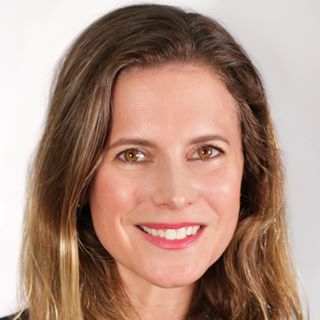
Founders Talk About The Challenges North American Beauty Brands Encounter Traveling Abroad
In this edition of Beauty Independent’s ongoing series posing questions to beauty entrepreneurs, we ask 15 founders: How difficult is it for North American brands to break into international markets?
- Eugene He Founder, Ceramiracle
We entered the international market fairly quickly within the first year and that was a real challenge, but having a multicultural team has been a great advantage. Now in our second year, we already have an established presence in Southeast Asia with East Asia and the U.K. happening sometime this year. Every market came with a steep learning curve, especially when navigating through complex regulatory requirements and ever-changing product standards.
As we have launched in countries both on our own or via a distributor, the road was definitely easier when working with great local partners. Finding a good distributor as a young brand can be extremely difficult, so unless you already have an existing network, the only way to be discovered is through trade shows or solid global PR.
While the prospect of going international might sound like a dream come true, be prepared for big changes and more hours in your business operations as you deal with demand planning, international shipping, legal documents, translations, currency fluctuations and more still while keeping your indie passion burning bright.
- Dana Roberts Founder, Malie
If you are a new brand with little international experience, the best and most cost-effective resource to gain access to the international market is through the U.S. Commercial Service at the U.S. Department of Commerce. Every region in the U.S. has a local representative whose responsibility is growing U.S. exports. By finding your local representative on trade.gov, you can learn about the international trade shows they host and the amazing programs they offer to gain access to the markets you are interested in.
- Sandra Anderson Diaz Co-Founder, NU Evolution
As an American brand, having a global presence has always been a part of NU's overall business strategy. However, it is complex and involved due to each country's logistical and financial requirements for registering a brand.
Also, keep in mind that product boxes may be required to contain all copy translated in the language specific to that country in addition to English. Depending on the country, timing can be a factor, too, as it could take up to several months to get through the process. So, planning well in advance of a projected target launch is key.
- Andrea Lopez Founder, Bonum Vitae
I reach out to people from different countries that are in my field: beauty bloggers, etc., and offer to send product for review. If they like it, they will post or review on YouTube. Social media has played a huge factor in my success internationally. A vendor found me through Instagram and purchased in bulk for the UAE.
- Chris Hobson Founder and CEO, Patchology
Patchology's 5 Minute eye patches and sheet masks appeal to busy women of all ages, whether they are in New York, London, Melbourne or Seoul. Because of our universal appeal and the ability to connect directly with consumers globally via social media, we consciously made the decision to accelerate our international expansion.
However, instead of finding distributors in each market, we have decided to work directly with leading retailers in key markets: Sephora in Europe, SpaceNK in the UK, Mecca in Australia, etc. This gives us more margin to be able to support local marketing activities, in addition to global outreach via Instagram, Youtube and other platforms. In most cases, we also own and operate our website in these countries, and we have built a scalable platform to enable that.
- James La Founder, NIUCOCO
We are a North American brand and, in order for us to export, there are a number of factors to consider. First, compliance with the territory's regulatory bodies (i.e. Europe, Asia). Second, finding the right distributor. And, third, supporting distribution in those markets.
Before you go international, make sure you understand what you need to do to ensure a positive experience for your consumer and a profitable one for your foreign business partner. To be noticed, be present in the relevant trade shows. This platform gathers buyers in your category and allows you to connect with independent agents overseas and buyers from your relevant retailers. If you're an unknown indie brand, find creative ways to draw people to your booth so they can hear your story.
- Holly Harding Founder, O'o Hawaii
The best way to break into the international markets is to connect with your state's Department of Business and Economic Development office or your local Department of Commerce office. Every state is different, but in Hawaii the state offers Gold Key programs where they will research markets and make contacts for you in different countries that are a good fit for your product/company.
In addition, the state coordinates and subsidizes several trade shows per year in markets like Japan. This is an invaluable service and was used with my previous company to launch in Japan and Korea, and is being used to launch O'o Hawaii in these and other markets later this year.
- Maribeth Pyne Founder and CEO, dome BEAUTY
Approaching international markets can be difficult, but our mission is based on the global concept to provide quality cosmetics for everyone. We are proud to say we have had the pleasure to work with influencers across the globe from Algeria and Spain to here in the U.S.
We have also targeted marketing efforts in the E.U. and received amazing press coverage in England. We are extremely pleased with the progress made to reach everyone and will continue to promote our global philosophy of inclusion for everyone, supporting diversity of race, age, gender and disability.
- Randa Fahmy Founder, Makeup America!
American brands remain very popular throughout the world in the most unexpected places. As such, international distributors have reached out to us, wanting exclusive distributor agreements for their regions. Although we are new and presently only selling in the U.S., we have future plans in 2018 to expand our product line alongside our international distribution.
- Danuta Dudek Founder, Cotarde
As a brand, we have a truly American soul, meaning freedom and the entrepreneurial spirit are the most important factors in anything we do. Due to our travel-related profile – we are the world’s first skincare entirely dedicated to pilots and travelers – it’s natural for us to be close to anyone anywhere. The web provides limitless opportunities to break into the international market and, for a startup brand with a limited budget, it is the best way to go. It helps that global customers seem to relate to our brand very well, so we get orders from all around the world.
- Julia Teren Founder, Thesis Beauty
We are represented in several countries and those accounts have come to us on their own initiative, I guess through the right PR and social media messages. We have amazing partners in the U.K., Romania, China and the Middle East.
It's no secret that exporting is tough on the brand because you have to agree on so many things like logistics, paperwork, samples, testers, marketing, et al., and how to share the cost of it. Shipping probably takes central place in this because it translates in higher costs to the distributor and a higher price for the end consumer, unfortunately, or it eats into our profits. So, it really is all about trying to understand how much you are prepared to give up in order to gain a new market. Another way to meet great international partners is going to trade shows.
- Matthew Stillman Founder, Primal Derma
Primal Derma's strategy isn't for explosive, tumor-like growth, but, when customers of ours in Canada wanted to not pay the fifteen bucks in shipping from the U.S. to Canada, they started advocating for us to local shops in their neighborhoods.
We don't know exactly what we did right to have people who have no financial stake in the company make the case for our venture and open their contacts to us, but we'll take it. We are in a handful of Canadian stores through just this model. This village-minded approach to feeding a business is culture-making and brings us more deeply in relationship with our customers and buyers. We'd love to keep this approach up for as long as we are able.
- Jean Baik Founder, MISS A
Since social media is so international, that has really helped us break into the international market. We currently ship to over 150 countries all over the world.
- Metta Murdaya Co-Founder, JUARA
We view ourselves as a best of East meets West skincare line that combines the traditional Indonesian herbal Jamu heritage with the best of Western quality and technology. Because our focus is on historically proven holistic wellness, we find we actually cut across country boundaries attracting people who share that belief that beauty is centered around self-care with safe and effective ingredients.
Some markets are attracted to the Western aspects of our line and performance as that is what they lack (i.e., Indonesia) while others resonate with the empirically-proven, centuries-old natural tradition because that is what is more unique to them (Western markets). Our strategy is to stay on course and on message to promote the Jamu tradition to maintain our unique point of differentiation. In that sense, we feel it is an advantage to be an American brand that has global appeal to human wellness, and adjust our messaging to resonate with local markets.
The challenge is limited availability of distribution channels that cater to this total wellbeing-oriented clientele, which may vary in size in different markets. The good thing is that we are finding more and more people are believing in holistic health tradition as evidenced in the increased number of inquiries we have been receiving.
- Lorenza Pintar Founder, BUTTERelixir
I don’t believe in strategies, and I never had one. From time to time, I get a wholesale request, but that’s all. I run my business organically, and I focus on the now. In my own experience, it’s a more efficient, realistic and dynamic way to deal with challenges. Approaching things as they come one step at the time is definitely a skill I learned from my Ashtanga Yoga practice. Also, strategies are not interesting to me. The practice itself and the people I connect with through business are.
If you have a question you’d like Beauty Independent to ask beauty entrepreneurs, please send it to editor@beautyindependent.com.








Leave a Reply
You must be logged in to post a comment.